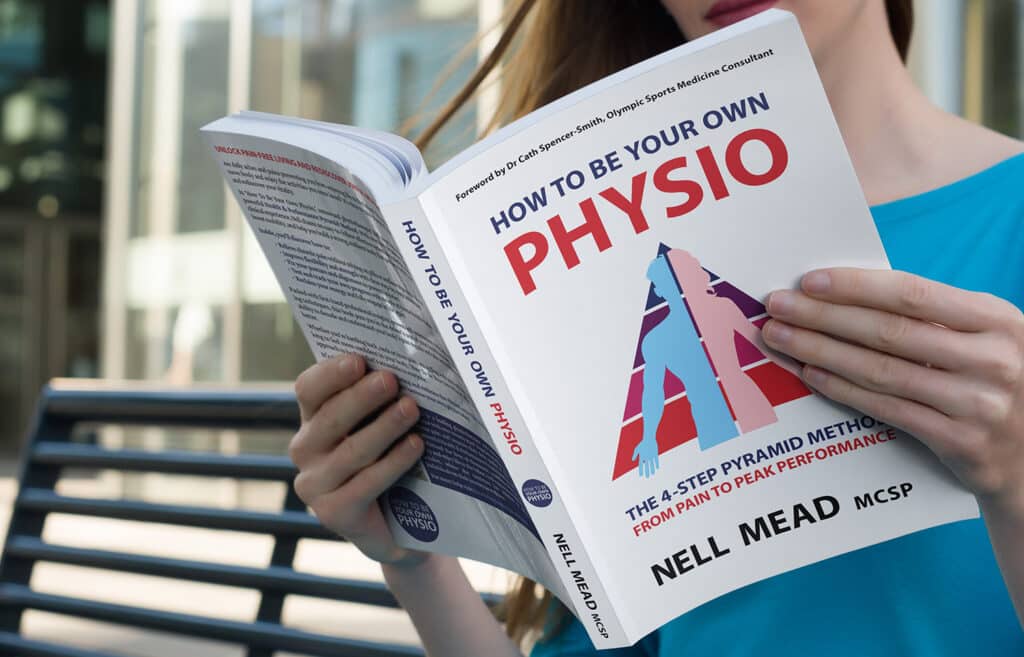Back in the pre-COVID days…
I admit it: I’ve never been super fit. Even back in my Army days, I’ve always had pretty average fitness, overall, for a fairly-sporty woman of my age and build. Strength slightly above average (my mum jokingly used to call me Kimberley-Anne), endurance about average (even when I was training for the London Marathon and could run for 4 hours, I got out of breath climbing the stairs – what was that all about?!), flexibility slightly below. I could stand on a Swiss ball, so my balance was good. I might only beat a toddler in a running race, but put me on a tennis court and I’d give anyone a good game. And as a result, I’ve always been reasonably resilient to injuries (my injuries tended to be more down to accidents than lack of robustness!)
Lockdown: not great for fitness
Then COVID hit and we all went into lockdown, allowed an hour of “exercise” a day. With an elderly dog to look after, for me that essentially meant a slow walk. As the exercise limits were gradually and unevenly lifted, I’ve been walking longer (my Fitbit tells me I’m currently averaging 17,814 steps per day!) – but not much else, for the past year.
It’s taken its toll. I don’t have the reserves of fitness that I used to, and I can feel it. Chronologically I’ve aged one year; physiologically I feel as though I’ve aged about 10. My new Garmin tells me that my fitness age is older than my actual age – eek!
Walking, in a straight line, at a fairly steady pace, definitely has benefits for the heart, so I’m not knocking it and it’s better than nothing. But now that the tennis courts and the gyms have reopened, we’ll need to be able to balance, to twist, to change direction, to accelerate and decelerate, to swing and rebound, to make shapes we’ve not made in a long time. And my body, for one, has definitely forgotten how!
I’ve used this year to build up my YouTube channel (I’ve uploaded nearly 100 publicly-available videos since the start of the first lockdown, mostly explaining exercises) and with that in mind, I thought I’d film a playlist of basic exercises using the Swiss ball, which is a brilliant bit of kit when used with imagination, as one piece of equipment can be used to make simple bodyweight exercises fiendishly difficult, yet always quite safe as long as you listen to your body and don’t overreach yourself.
Back in my Army days, I used to teach Swiss ball classes; and as a tennis player I’ve always had reasonable balance, so I didn’t think filming these exercises would be too difficult. But my post-lockdown body got a shock! It was so much harder than I remember it ever being before, and at one point I even pulled out of filming one of the harder single leg hamstring curl progressions because I could feel my hamstring twinging ominously – that’s never happened before!
But the lockdown’s coming to an end… should we rush back to the pitch?
I’m worried that people are going to injure themselves this year, due to the excitement of being able to play tennis, rugby and football again, off the back of a year of nothing but walking. The truth is that you don’t play sports to keep fit, you have to get fit to play sport – and the older you get, the truer that is!
That’s why I’ll be using these Swiss ball exercises to rebuild some of my physical resilience, and I would strongly suggest you try doing the same. Done well, they help you to improve your core control, your balance and your strength, power and endurance.
How do Swiss balls help?
I’m not a big fan of using a Swiss ball instead of an office chair – I find it’s just as easy to slouch on a ball as it is on a chair! I’m a huge fan of using them for exercise though, especially when you need to build up your balance, coordination and strength. You can make the exercises as easy or as challenging as you want to, by changing your position so that your arms, legs and torso are doing more or less work.
For example, sitting on the Swiss ball with your feet wide apart (a “wide base of support”) will be easier than sitting on it with your feet together, or one foot in the air (a “narrow base of support). You can keep things simple and keep the ball still, or you can increase the difficulty by rolling it in straight lines or circles… with a little bit of knowledge and a bit of imagination, the possibilities are pretty limitless. Best of all, it’s fun – you get to play on the grown-up equivalent of a space hopper – what’s not to love?!
Where can you buy a Swiss ball?
I recommend Swiss balls from a company called 66Fit, who make good quality products for physiotherapists. It’s important to get an anti-burst ball, which simply means it’ll deflate slowly rather than imploding underneath you if you manage to roll it over a drawing pin! They also sell through Amazon, which is handy. I generally think that if you’re between 5’2″ and 6′ tall then a 65cm ball will be about right. Below 5’2″ and you’ll be better-off with a 55cm ball; and people over 6′ usually prefer a 75cm ball.
If you have no injuries and feel confident to try a Swiss ball for yourself, then my YouTube playlist might give you some new ideas. Or, if you’d like individual advice on how to test and work on your strength, flexibility and endurance so that you can “injury-proof” your body, please do call my team on 0207 175 0150 and book an assessment with me.







